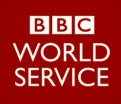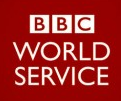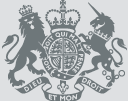By Tara Conlan, TheGuardian.com
BBC News should consider partnerships with foreign broadcasters and look at launching new services, such as radio news for North Korea or a TV channel in Africa, according to a report.
Sir Howard Stringer’s report, commissioned by BBC head of news James Harding, offers a range of recommendations to expand its services to help achieve the corporation’s ambition of serving a global audience of 500 million by 2022.
The corporation’s non-executive director said that BBC News should consider a “comprehensive” partnership with another national or international broadcaster, involving “deeper” newsgathering collaboration.
New TV and radio services
Stringer said the corporation should consider opening “at least” one new language service for an audience facing a “severe deficit in free and impartial news”.
He pointed to North Korea or Ethiopia – “if a realistic route to market can be found”.
Stringer also said he believes there is scope for a multi-genre, free-to-air channel in Africa.
However, he admitted that previous assessments of new language services and a TV channel has suggested that “neither could be funded purely commercially”.
“[They] would require would require the buy in of [BBC] Worldwide and [BBC] News and would … require a BBC-wide commitment to provide the investment and accept the loss of some revenue in order to secure the long-term position of the BBC in Africa.”
The corporation should also better exploit “near news brands”, such as The One Show and Countryfile, as well as develop a version of Newsround that could be sold internationally.
“The BBC should look to build on its most successful – and unique – ‘near news’ brands, seeking partners to make them for local language markets,” he said. “This builds on the recently announced global version of Newsbeat. Two that stand out are The One Show, rightly known for its mix of celebrity, entertainment and current affairs, and Countryfile.”
Advertising, sponsorship and data
Stringer said that the publicly-funded BBC has failed to embrace international advertising and sponsorship opportunities because the default position is to “protect its reputation but in many markets the BBC is now operating as a commercial broadcaster.”
He said the BBC should avoid being “reluctant” to take sponsorship outside the UK for programmes that were made in Britain with licence fee income.
Stringer added that believed that the corporation should adopt a “more open stance” and see if there is a “looser approach” to raising money from “native” advertising abroad in order to “generate the income it needs.”
For example, BBC.com’s news service could raise about $2m (£1.2m) a year from native advertising.
He also recommended a more aggressive strategy for customer data a collection.
“[The BBC] must plan upfront how it will use all the data at its disposal outside the UK for commercial as well as site experience purposes ,” he said. “And aim to make sure its systems and the messages given to international audiences allow it to do that.”
He stressed his report is “not a blueprint for the[BBC] executive” but the views of an outsider who, in trying to “get to grips” with the corporation and “its inner workings has left me full of admiration but also, at times, confusion”.
Acting director of BBC World Service Group Liliane Landor said: “We welcome Sir Howard Stringer’s report – it is stimulating and ambitious, and asks refreshing, sometimes provocative, questions of the BBC.
“As we build the BBC’s global news services for the future we will be looking carefully at the report’s proposals. We do not regard this as a blueprint and the ideas are there to pick and choose from, but they will all help open up the debate about how best we can serve our audiences.”





There’s some serious misunderstandings going on here…
Public Service BBC, which compromises in part of UK news services, TV and Radio broadcast within the UK (where UK equates to “every jurisdiction where the TV license fee is payable to the BBC) has no real obligations at present to service anyone outside of the UK. The BBC World Service, which up until April this year was funded by a grant-in-aid from the British Foreign Commonwealth Office is now paid for by the license fee. Justifying any any increased expenditure for it will become hard because by default its audience is outside where it derives funding from.
BBC Worldwide on the other hand is a separate commercial arm. Unlike the public broadcast side it can show advertisements and generate profit, and it’s focus is purely on creating and re-selling BBC created/licensed content to the rest of the world and then giving the profits back to the public service. It in part controls BBC Global News Limited, the company specifically responsible for BBC World News and the bbc.com domain.
Still with me?
In summary, BBC World Service will have an uphill battle justifying entering a new market now it’s being paid for by people who aren’t its audience, and Global News Limited will only go into markets where it can profit. If World Service was continuing grant in aid, efforts from the various interests within the Korean region in providing a new source of news could have lobbied with the UK government to insist the World Service and FCO make it happen. The reality is that thanks to Tory cutbacks in spending, that’s not going to happen. Keep blogging about it, I don’t see this position changing any time soon.
So, to be more specific on what’s wrong here:
> Stringer said that the publicly-funded BBC has failed to embrace international advertising and sponsorship opportunities
Publicly-funded BBC is prohibited by charter to advertise. It’s remit is also localised to the areas which it receives the TV license fee from homes. Only BBC Worldwide can advertise, and it’ll only do so where it believes it can be profitable to do so. BBC Worldwide reports approximately 11% profit margin on revenue, I doubt the figures posed in this article are realistic.
> require a BBC-wide commitment to provide the investment and accept the loss of some revenue
It is expected of other, commercial broadcasters to enter non-profitable markets for some long term gain that may not be fiscally related? I doubt this as well.
> The One Show and Countryfile
Are both programs that are entirely localised to the UK. Countryfile in particular is localised to rural UK, with a large portion of its viewership outside of major cities. Unless your audience is up to date with lateset UK news and events, as well as regional culture, The One Show may not be suitable for the region. I question wether Stringer has bothered to look at BARB figures for either of these shows or consulted with the BBC’s Marketing & Audiences department.